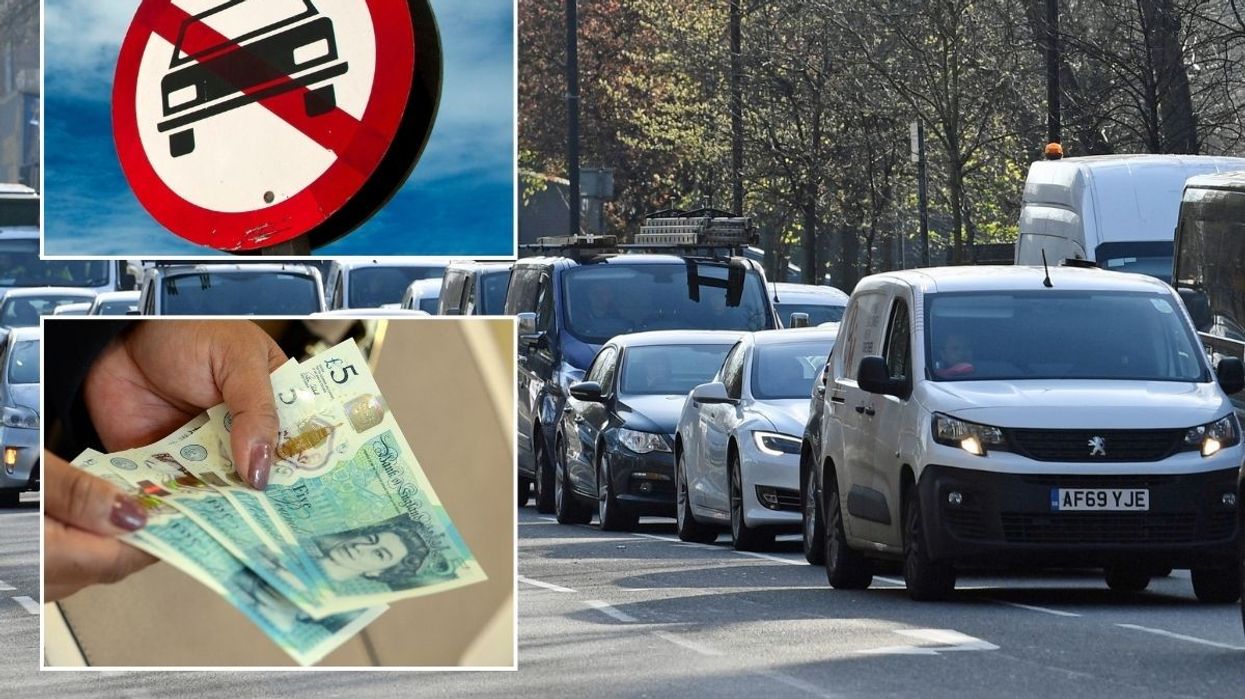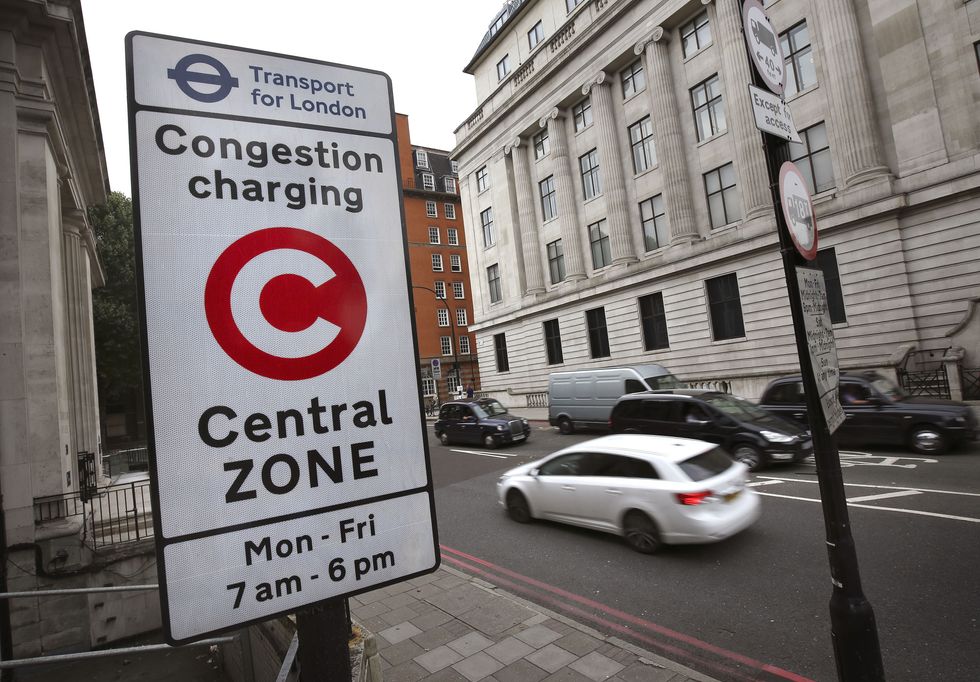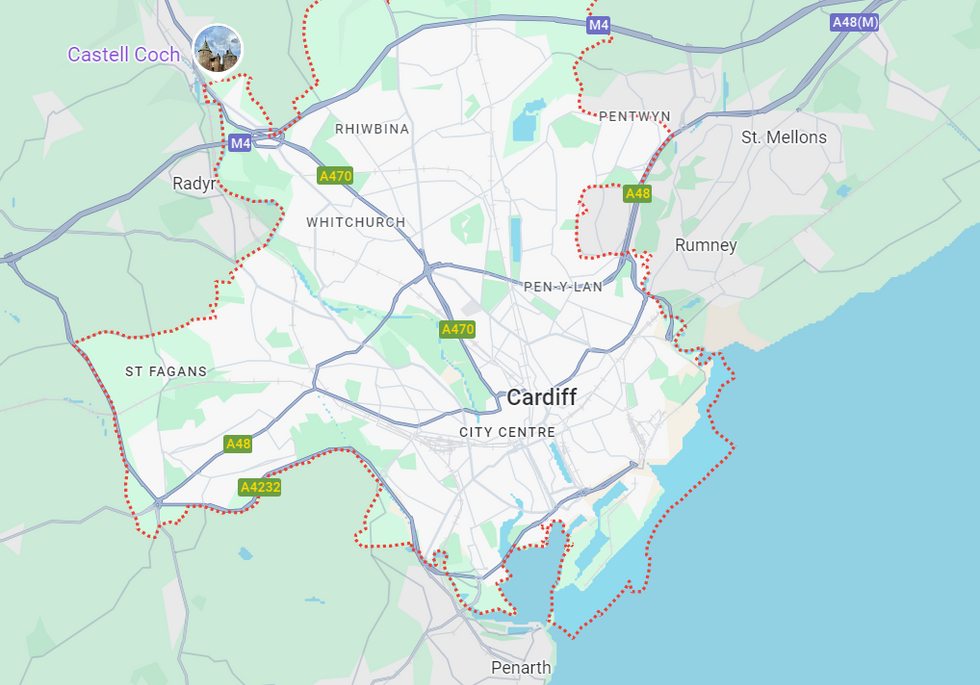Major UK city may introduce Congestion Charge that would 'adversely impact' drivers with daily fines

Experts have suggested the introduction of a £2 Congestion Charge
|GETTY/PA

Don't Miss
Most Read
A new Congestion Charge in one of the UK's biggest cities could see drivers forced off roads, according to one expert, as local authorities look to tackle traffic and pollution rates in popular areas.
Cardiff City Council has previously looked into the viability of a road user charging scheme to clean the air inside the city, emulating similar schemes used around the UK like London's Congestion Charge and Ultra Low Emission Zone.
A report from the Centre for Cities in November 2023, suggested that a Congestion Charge could be used in the central areas of the Welsh capital, rather than it being a charge for entering the local authority area.
Victoria Winckler, Director of The Bevan Foundation, echoed the calls, saying that something needed to be done to crack down on congestion in the city, which was harming the economy of Wales, as well as its citizens.
Do you have a story you'd like to share? Get in touch by emailing motoring@gbnews.uk

London's Congestion Charge was first introduced in 2003
| PAGB News understands that Cardiff City Council has recently secured funding for the second stage of the Outline Business Case (OBC), although it declined to give a further update.
A council spokesperson previously told Wales Online that work was still ongoing to look at the "multiple potential benefits a road user payment could bring" including slashing congestion, public transport investment and making the city greener.
Centre for Cities estimated that a £3 charge applied to a smaller part of Cardiff that includes the city centre, Cardiff Bay and the surrounding areas could raise around £25million and improve the air quality.
Cardiff’s Transport White Paper: Transport Vision to 2030 report also suggested that a road user charging scheme with a minimal charge, like £2, would tackle climate change, reduce congestion and provide funding for public transport initiatives.
However, experts have warned that introducing such a scheme could have devastating impacts on residents in and around Cardiff if were plans to be advanced.
Duncan White, Director of the Alliance of British Drivers (Driving Sense), spoke to GB News about what a potential scheme would look like if it were to be introduced and what the impact, if any, would be on drivers.
He said: "Certain local authorities are absolutely intent on introducing any one of a number of various schemes that all have the same objectives.
"Firstly to reduce accessibility to high-density city areas, secondly due to ideological reasons that deem private vehicle ownership and use as unacceptable and thirdly to capitalise financially at the expense of road traffic.
"Any council proceeding to the second stage OBC has, in all probability, concluded that such a scheme is a) justified b) affordable and c) sustainable regardless of the negative impact that such schemes have on workers, commerce and the rights of citizens to enjoy the mutually beneficial freedoms of association, unfettered mobility and access to publicly owned facilities."
He warned that a potential scheme would "invariably and adversely impact" the working class, part-time employees, those who have issues with mobility and the elderly.
It is expected that any decisions made regarding a Congestion Charge, or any other road scheme, would be revealed in 2026, with it likely taking years to organise consultations and roll out.
As part of developing Cardiff into a "Smart City", the One Planet Cardiff report indicated that energy, traffic flows, congestion and air quality would need to be managed.
LATEST DEVELOPMENTS:

It is unknown how much area a potential Congestion Charge would cover
|GOOGLE MAPS
As part of ways to developing methods to improve air quality and meet net zero goals, the Transport White Paper recommended that the uptake of electric vehicles should be supported by "significantly increasing" the number of publically-available of EV chargers by next year.
It also called for a 2025 deadline to ensure all council fleet cars and LGVs are zero emission capable, while supporting zero emission HGVs "as soonas possible".










